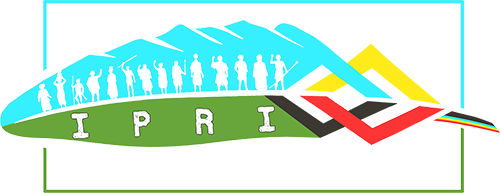Criminalization
Criminalization refers to the ways in which criminal law is used improperly, through the manipulation by the State of its punitive power against those asserting and claiming their human rights, including indigenous peoples. This is done through the adoption and enforcement of discriminatory laws and policies which are inconsistent with International Human Rights Laws and instruments which protect the fundamental rights and freedoms of human beings and the exercise and defense of indigenous peoples’ collective rights. Structural racism and discrimination against indigenous peoples persist in many States and societies which leads to the criminalization of indigenous peoples.
These actions seek to harass, intimidate, silence and or lock victims in costly legal battles, and restrict democratic spaces for legitimate protest and actions in defense of human rights. Baseless allegations or trumped- up criminal charges such as robbery, murder, homicide, kidnapping, illegal possession of firearms, economic sabotage, aggravated trespassing, destruction of properties, terrorism among others are filed against indigenous peoples’ leaders and many end up in jail for long periods of time. Most victims have no access to justice because they cannot afford lawyers and they are usually discriminated against by justice authorities. National security laws, anti-terrorism laws and in some countries even environmental laws are used to justify the filing of false charges.
Criminalization is not only limited to the filing of trumped-up charges but extends to the illegalization of indigenous peoples’ traditional occupations and cultural practices. Some States with Indigenous peoples have laws criminalizing and discriminating indigenous peoples’ traditional occupations such as hunting and gathering, shifting cultivation or rotational agriculture, pastoralism, and traditional fishing. Traditional healing practices, which include healing rituals and use of traditional medicines, indigenous governance and other cultural and food practices are also regarded as illegal in many countries. These violate the collective rights of indigenous peoples to practice their cultures, to self-govern and pursue their economic, political and socio-cultural development, affirmed the UN Declaration on the Rights of Indigenous Peoples. This is further exacerbated by the lack of legal recognition of indigenous peoples. There are significant numbers of indigenous individuals languishing in jail for practicing their traditional occupations and cultures.
Impunity
Impunity is the other face of indigenous peoples’ realities. This refers to the systemic violations of the fundamental rights and freedoms particularly the right to life, the right to due process and the right for access to justice.
The Global Witness reports in 2016 and 2017 show the disproportionate representation of indigenous peoples amongst those who were killed (40% while indigenous peoples in only 6% of the global population) because they were defending their lands and protecting the environment.
The Frontline Defense Global Analysis of 2018 shows that in 2018 there were 321 defenders in 27 countries who were killed and more that 77% of the total were activists defending land, environmental and indigenous peoples’ rights. Many of these cases are linked to agribusiness expansion, extractive industries and State mega-infrastructure projects in indigenous territories.
Most of the perpetrators of these killings have not been brought to justice as victims and their families do not have the resources to bring cases to court and are usually threatened by perpetrators if they file charges. Indigenous peoples lack of access to justice and impunity further embolden perpetrators to commit extra-judicial killings.






